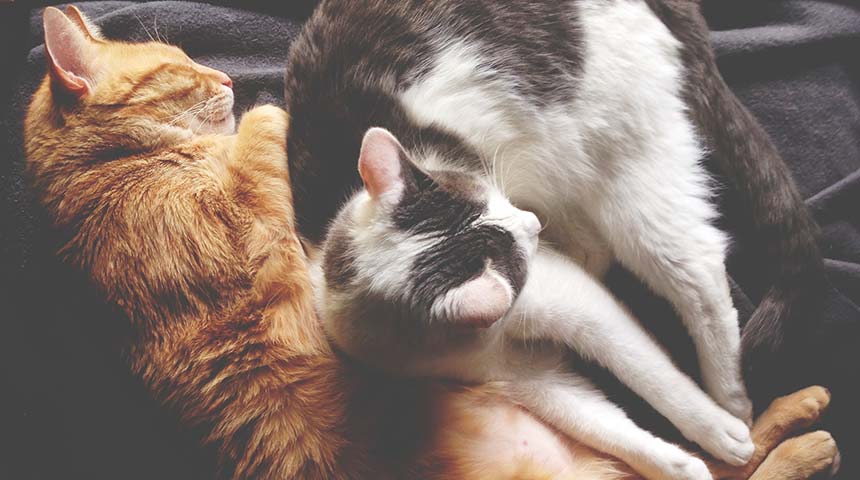
External otitis is a frequent disease of the ear in small cats. It consists of an acute or chronic inflammation of the ear canal and sometimes of the ear pinna.
If your cat shakes its head frequently, scratches its ears or rubs them on the ground, if its ears are red, dirty and smell bad, they are perhaps the centre of an inflammation called otitis. This disease can affect one or both ears simultaneously. Sometimes liquid discharges can be noticed. In severe cases, the cat can lean its head towards the infected side.
Factors responsible for external otitis are numerous and varied; foreign substances such as shampoo, inadequate medications, water entering the canal during swimming and foreign objects promote the onset of inflammation. Some parasites can also colonize the ear (ear mites). Allergy problems (food and other), hormonal imbalance and autoimmune diseases can also induce the occurrence of otitis. Finally, the presence of tumours in the ear canal can also cause this type of inflammation.
An otitis that is left untreated can lead to severe complications. Bacteria and/or yeast multiplication can be seen with the occurrence of infection; proliferation of these microorganisms aggravates the inflammation of the affected ear. To cure otitis, it is necessary to treat the underlying causes and complications. Your veterinarian will perform a cytology by taking a sample of the secretions to examine them under a microscope. When there is a bacterial infection, a culture with an antibiogram may be necessary. After having determined the cause of otitis, your veterinarian will prescribe an appropriate treatment. They can show you how to clean the ears and how to apply the chosen ear medicine. If the bacterial otitis is severe and/or chronic, and/or if otitis media is detected, systemic antibiotics may be indicated. It is also good to know that when the external ear is affected and it is not treated correctly, this can spread to the middle ear and to the internal ear; dogs and cats can then have loss of balance, and become deaf.
If you have any doubts regarding the health of your pet's ears, consult your veterinarian!
If your pet requires cares that cannot be performed in your hospital, we will transfer its file to one of our dermatology specialists working at the Centre Vétérinaire Rive-Sud or at the Centre Vétérinaire Laval.

